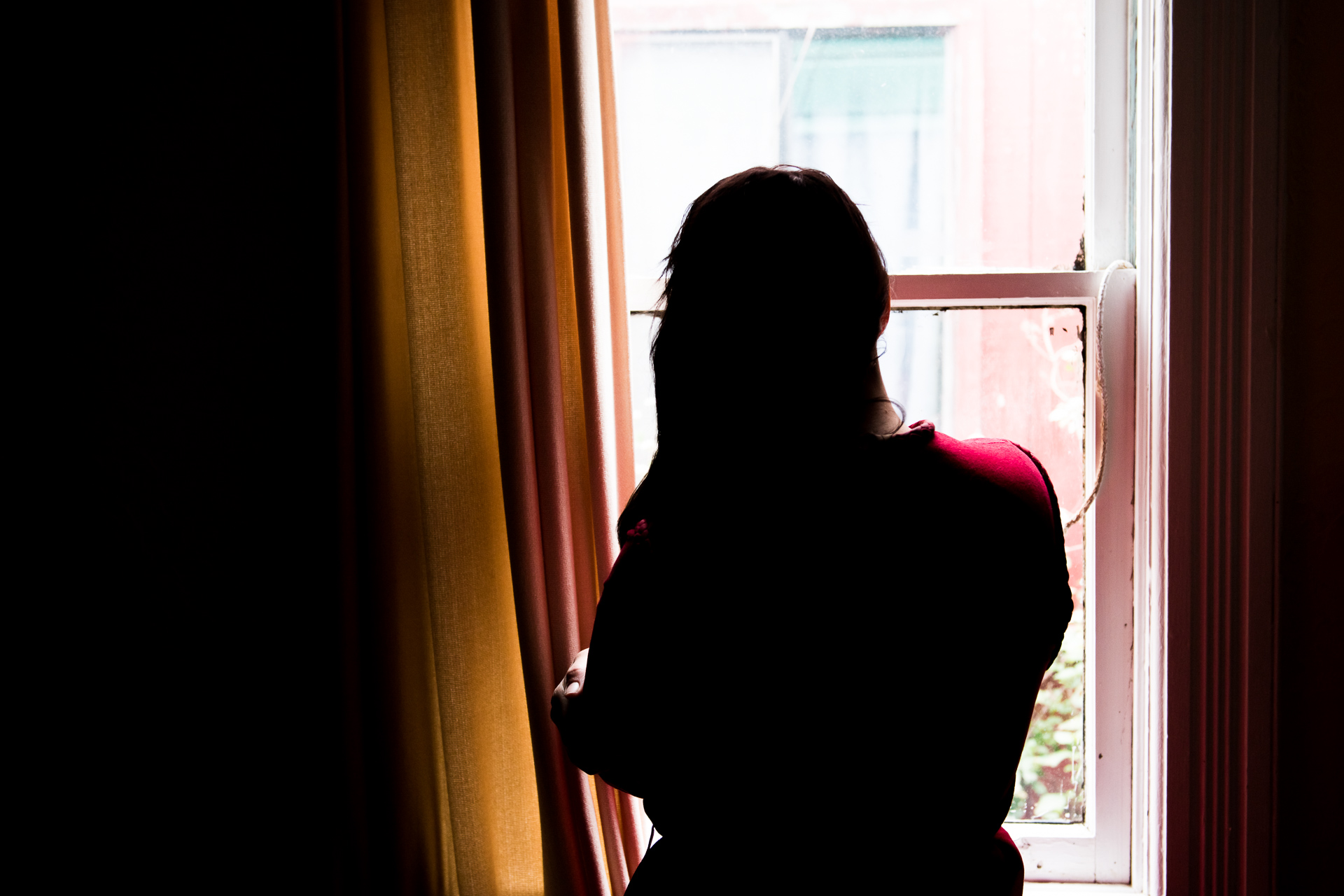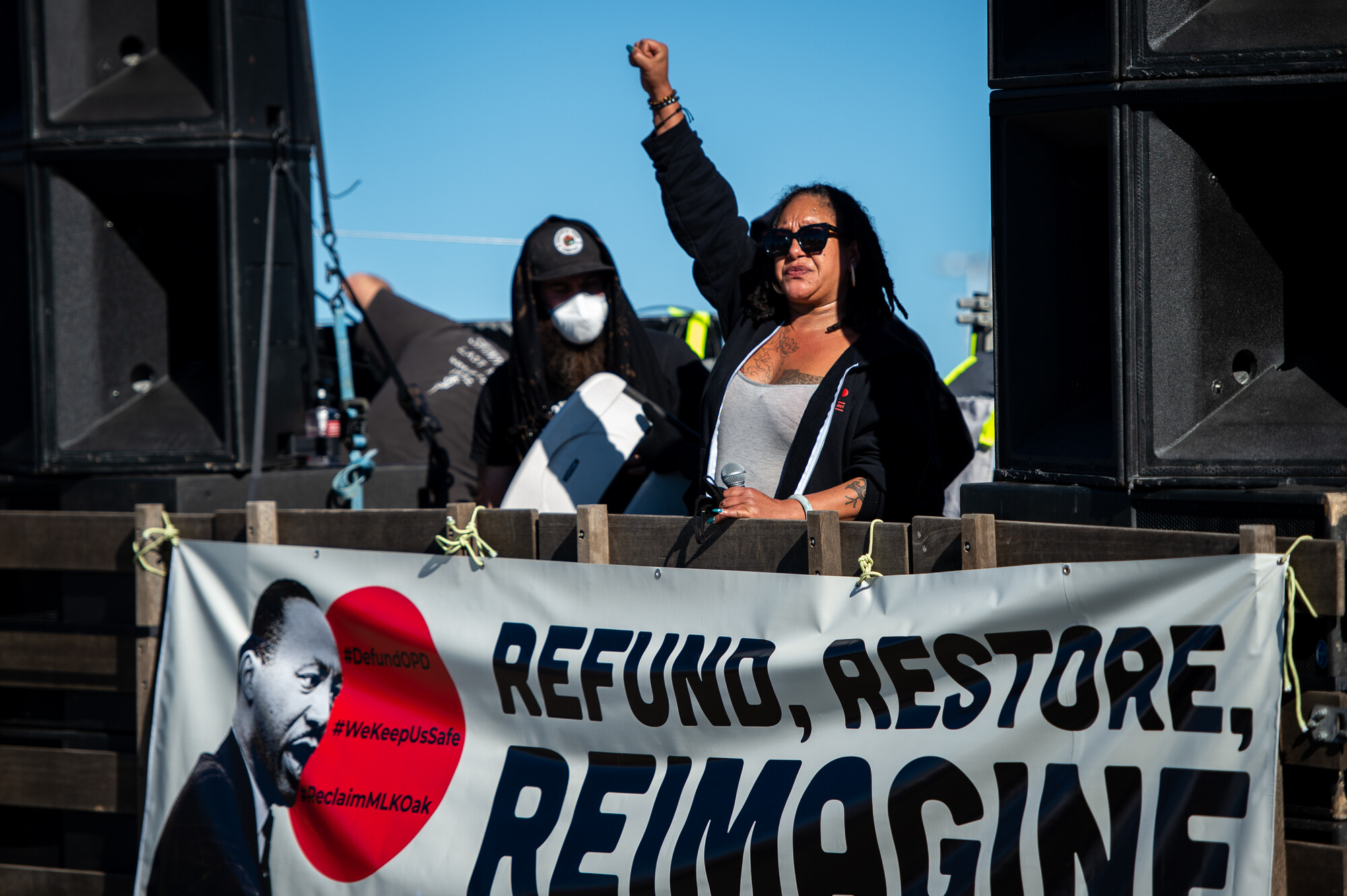At the Family Violence Law Center in Alameda County, survivors can access free legal services, divorce clinics and other programs. With employees serving as domestic violence counselors and lawyers, attorney-client privilege protects survivors’ privacy, barring the organization from disclosing information without their consent.
Owens, policy and advocacy manager at the Family Violence Law Center, said the center also works to educate young people on healthy relationships and the causes of domestic violence.
Research on adverse childhood experiences shows that children who face early trauma, such as abuse at home, are 80% more likely to experience future abuse and 60% more likely to cause harm, Owens said. Teaching young people to process emotions through open communication and healing is key to stopping cycles of violence.
“The importance of modeling appropriate behaviors and conflict resolution and healthy relationships for young people is so that they can replicate that and spread the word,” she said. “There are things that we have to normalize like consent, having conversations, asking for permission, seeing each other as equals.”
Jordan Thierry, a filmmaker and consultant for the Alliance for Boys and Men of Color, said entrenched patriarchal norms can also perpetuate violence in Black communities and homes.
“A lot of the messaging [young Black men and boys] are being fed is that you have to subjugate others,” Thierry said. “We’re really trying to broaden their perspective and their notion of what it means to be a man. You can still feel whole and powerful and confident and free and liberated while not having to cause harm or put yourself above anyone else.”

Thierry said much of the work he and his colleagues do centers on educating the public about cycles of harm. For people who have been incarcerated or endured state violence, he said, the trauma can often manifest in ways that cause harm to others.
After Brooks remarried in 2017, she said she also experienced abuse from her second husband.
Her partner was a Black man who immigrated from the Caribbean, and the violence emerged during times when he struggled with unemployment. Brooks said there is never justification for abuse, but she noted there should also be more avenues for people of color to process their pain.
“He’s not my enemy,” she said, referring to her second husband. “I’m talking to both survivors of harm and causers of harm. You have nothing to be ashamed of. The mandate is that you get help for yourself, that you interrupt the cycle of violence.”
Part of addressing the issue of domestic violence in Black communities and families, Thierry said, involves understanding the historical context and the specific traumas and systemic barriers that Black men, boys and women have faced — and continue to navigate today.
“For the last few generations of my family, there has been state violence, the violence of poverty,” he said. “Whenever we’re talking about intimate partner violence that is happening in Black communities, it’s important to acknowledge the historic role that our systems have had in perpetrating harm.”
Moving forward
While the domestic violence charges against Brooks were eventually dropped, the trauma and shame lingered for years. Brooks, whose mother was a frontline activist in the movement to end domestic violence, said she struggled in silence long after leaving her former husband.
“The fact that my mother was who she was almost made it worse,” she said. “I’m supposed to know better. I was supposed to leave. I was never supposed to be in that situation in the first place.”

After leaving Las Vegas, Brooks made her way to Oakland. In 2010, she co-founded the Anti Police-Terror Project to address police violence in Black communities. Through her advocacy work — and the support she found in the men and women around her — she began to heal from the trauma of her first marriage and the abuse that occurred in her second marriage.
Addressing domestic violence became a cornerstone of her organization’s on-the-ground work, Brooks said. Early outreach by the Anti Police-Terror Project focused on connecting with survivors in the community and offering safe, supportive spaces to speak openly about their trauma — without involving law enforcement or other agencies.
The most important part is making sure survivors have agency, Brooks added. Whether someone is ready to leave the person causing harm or just beginning to take the first steps toward healing, the priority is ensuring they feel safe, supported and in control of their choices.
“We shame women as if it’s their fault. We shame them as if they were stupid for staying or for not knowing that he was violent,” Brooks said. “I want to break the cycle, because shame kills women. Shame keeps women from talking. Shame prevents them from reaching out for help.”
Editor’s note: This is the second of a two-part series that is supported by the USC Annenberg Center for Health Journalism’s California Health Equity Fellowship. Read part one here. If you or someone you love needs immediate assistance addressing domestic violence, call the National Domestic Violence Hotline at 800-799-7233.


3 Comments
https://shorturl.fm/hTzti
https://shorturl.fm/UM8nz
https://shorturl.fm/WppdC